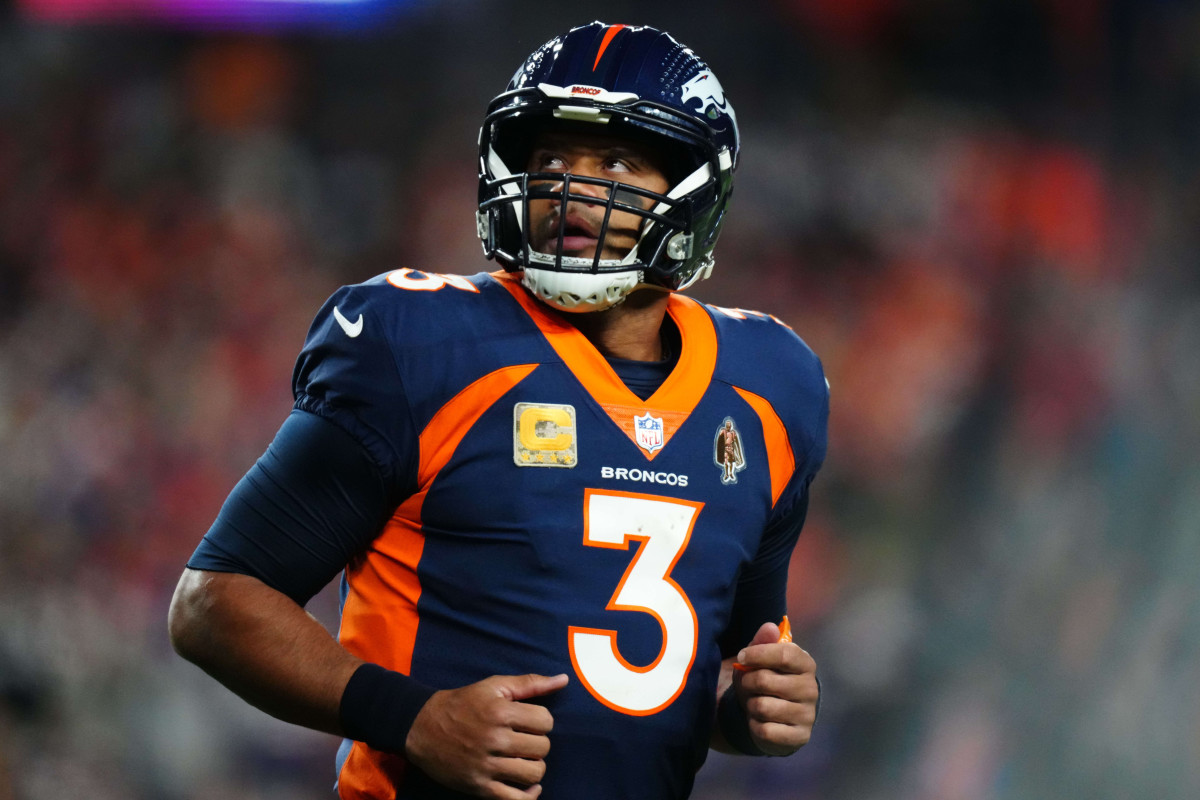Russell Wilson’s transition to the Pittsburgh Steelers has not been without its controversies. As a Super Bowl-winning quarterback, expectations were sky-high, but his recent comments have stirred up a storm of criticism, notably from Super Bowl champion Mark Schlereth.
Wilson’s assertion in an interview with Essence magazine—that his success had paved the way for Black quarterbacks like Patrick Mahomes—has sparked intense debate and reflections on his contributions to the game, especially in the context of his role in the Seahawks’ storied “Legion of Boom” era.

The Russell Wilson Controversy
Wilson’s remarks about his impact on the opportunities for Black quarterbacks were intended to highlight his early career achievements. However, the comments were poorly received by many who felt that Wilson overlooked the significant contributions of the Black quarterbacks before him. The backlash was punctuated by Schlereth’s pointed criticism on his podcast, “The Stinkin Truth Podcast With Mark Schlereth.” Schlereth challenged Wilson’s influence on players like Mahomes and emphasized the collective effort behind the Seahawks’ success during their Super Bowl runs.
Russell Wilson should put his money where his mouth is and donate his salary to subsidize WNBA salaries. Isn’t that what he expects the team owners to do? Apparently profitability is irrelevant.
— mudd (@HowManyLumps34) April 17, 2024
Reflecting on the Seattle Seahawks Super Bowl Run
Russell Wilson saw remarkable success early in his career, including a Super Bowl victory in just his second season and a near-repeat the following year. Yet, it’s widely acknowledged that the Seahawks’ defense, dubbed the Legion of Boom, was pivotal during their championship season. Schlereth highlighted this in his critique, arguing that Wilson was not the sole architect of those victories but rather a part of a well-rounded team that excelled in defense and had Marshawn Lynch powering the ground game.
“Let’s not jump on the Patrick Mahomes bandwagon; that guy is as good as it gets. And by the way, those Super Bowls that you went to? You had a generational defense, the Legion of Boom, that became the model in the NFL at that time,” Schlereth remarked. He continued, stressing that the defensive strategies developed then had become a standard for the league.
Russell Wilson’s performance in 2013 was solid, if unspectacular, contributing with 26 touchdowns and over 3,300 passing yards, coupled with nearly 550 rushing yards. These were commendable numbers, but they came within a framework where he was supported by an outstanding defensive lineup and a strong running game.

Pittsburgh Steelers’ Strategic Blueprint is interesting
As Wilson integrates into the Pittsburgh Steelers’ setup, comparisons with his former team are inevitable, particularly how the Steelers are shaping their strategy around a robust defense. The emergence of Joey Porter Jr. and the additions of Patrick Queen alongside stalwarts like Minkah Fitzpatrick, TJ Watt, Cam Heyward, and Alex Highsmith, position the Steelers as a defensive powerhouse in 2024. The offensive side, while showing potential, still has gaps that need addressing, particularly on the offensive line and at the receiver position.
As the Steelers look to their defense to lead the charge, the situation mirrors the Seahawks’ formula during their Super Bowl-winning season. It’s a strategy that could see Pittsburgh return to the postseason with renewed vigor, potentially echoing the past successes that Wilson experienced with Seattle.
Wilson’s journey with the Steelers is just beginning, and while his recent remarks have sparked controversy, they also ignite discussions on leadership, legacy, and the evolution of roles within the NFL. As the season progresses, it will be intriguing to see how Wilson adapts and whether he can lead his new team to glory, much like he did with the Seahawks, albeit this time, hopefully, with greater recognition of the collective effort involved

Source- Yardbarker









